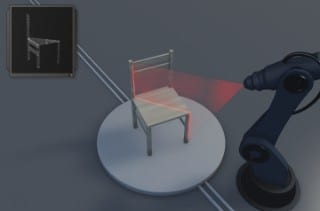
- Image via Wikipedia
In the future, your refrigerator might keep your food cold by using a magnet. Not only would it use less power and run quieter than your current fridge, but it also wouldn’t contain any hydrofluorocarbons, gases which can add tremendously to the greenhouse effect if not properly disposed of. It all comes down to something called the magnetocaloric effect, wherein a changing magnetic field within a material causes it to get colder. It definitely holds promise, although scientists first have to figure out just how the thing works.
Sujoy Roy, a physicist with Lawrence Berkeley National Laboratory in California, is studying the phenomenon. The trick, he says, is to find an alloy that exhibits the effect at room temperature, without too much energy input, and that is affordable.
To that end, various researchers have become particularly interested in alloys that display a giant magnetocaloric effect, which is exactly what it sounds like – an enormous shift in temperature when magnetic fields are manipulated. In 2008, Roy read about a team at Southern Illinois University who were using a nickel-manganese-gallium alloy with added copper, and getting a huge magnetocaloric effect at room temperature. He is now using Berkeley Lab’s Advanced Light Source, which generates light brighter than that of the sun, to examine how the alloy’s elements change as it undergoes the effect.










